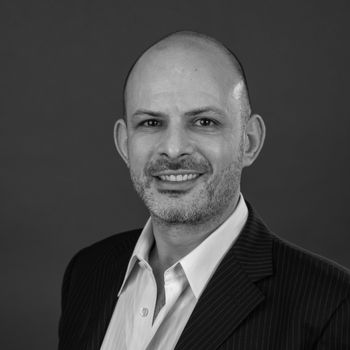PROF GIORDANO: Leftist ideology erodes real scholarship
The essence of academia has been corrupted by far-left ideologues who push a political agenda that weakens the worth of our institutions.
Nicholas Giordano is a professor of Political Science, the host of The P.A.S. Report Podcast, and a fellow at Campus Reform’s Higher Education Fellowship. With 2 decades of teaching experience and over a decade of experience in the emergency management/homeland security arena, Professor Giordano is regularly called on to speak about issues related to government, politics, and international relations.
The decline within higher education continues unabated. The essence of academia has been corrupted by far-left ideologues who push a political agenda that weakens the worth of our institutions. Diversity, Equity, Inclusion and Social Justice (DEISJ) initiatives, combined with the war on merit and fictional concepts like ‘global citizenry,’ have fueled anti-Americanism, antisemitism, and incompetence. This has led to a loss of confidence among employers, parents, students, and donors.
Unfortunately, one of the biggest casualties of this agenda is the heart of higher education – scholarship. This pervasive ideology has led to the erosion of scholarship. As my colleague Rob Jenkins points out, it goes far beyond the plagiarism scandals engulfing Harvard University. It is fraud and malfeasance.
[RELATED: PROF GIORDANO: The reckoning within higher education is here]
In the last few years, we have witnessed a surge in the retraction rate of academic papers, including at our elite institutions like Harvard, Stanford, John Hopkins, and others. Retractions at American institutions are for a number of reasons. Retractions can occur for a whole host of reasons, including mistakes, data manipulation and falsification, research flaws, and ethical violations.
What makes these retractions so egregious is the number of academics who review these papers before they are published. In order for a paper to be published in an academic journal, it goes through a lengthy review process. An editor will review the piece, and then forward the paper to a panel of independent experts who will verify the validity and the originality of any work and submit a report. Once an editor receives the reports, they will review them and determine whether the piece should be published. After publication, expert reviewers are selected to further scrutinize the piece.
Despite these measures, the proliferation of retractions due to plagiarism, fraud, and other violations demonstrates (or illuminates) a decline in upholding scholarly standards. Multiple factors are contributing to the decline in scholarship. One of these factors is how ideological agendas have taken precedence over intellectual inquiry.
This shift has led to a groupthink mentality that stifles open debate and critical thinking in favor of promoting specific narratives. This is particularly true in social science and humanities journals, where liberal academics outnumber conservative academics by a margin of 17:1 in the social sciences and 35:1 in humanities. Notice how few papers critical of DEISJ are published in academic journals.
Grant funding is another problem. Our government uses taxpayer-funded grants to advance an ideological agenda where scholars are more likely to produce results that support the government’s policies and goals. For example, despite conducting an exhaustive search, I was unable to identify any government grants that challenge the prevailing climate change narrative, further illustrating the influence of ideology on research funding allocation and publication.
Another factor is the new generation that has gone through an academic system where standards have been lowered, merit discouraged, and a sense of entitlement has replaced competency. Consequently, these shifts have resulted in a degradation of intellectual inquiry as some academics were never properly trained, and some succumb to the ‘publish or perish’ mentality by resorting to cutting corners in their research. Many of them substitute ideology for the subject matter expertise they lack.
[RELATED: PROF GIORDANO: Dr. Gay– The epitome of a problematic higher education system]
This phenomenon has created a death spiral in education. Lower academic expectations for graduates who then go on to pursue advanced degrees. Once they earn their degrees, they go back into the classroom as faculty and researchers, produce flawed research and perpetuate the deterioration of academia.
To break this cycle of decline, we need our institutions to embark on a concerted effort to prioritize academic integrity, strengthen the peer review process, increase transparency in the research process, and ensure accountability. Any academic caught plagiarizing or engaging in fraud and manipulation should be exiled from the institution. They undermine the credibility of their institution and betray the hard work of honest professors and researchers. These reforms can preserve the essence of scholarship and restore trust and credibility within higher education.
Editorials and op-eds reflect the opinion of the authors and not necessarily that of Campus Reform or the Leadership Institute.

